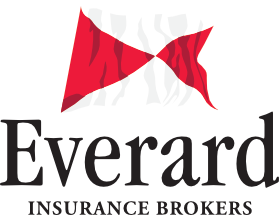
Ensuring you have the right insurance coverage is crucial. Many marine traders, boat owners and even some insurance brokers may not fully understand the intricacies of their marine insurance policies, particularly when it comes to the marine section.
In this post, we take a look at key components of marine insurance, specifically the basis of cover, helping you to determine whether you are adequately covered or your client has adequate cover under their marine section.
What Types of Marine Cover Is There?
Marine insurance policies typically offer two main types of cover for your boats, vessels, or watercraft: Agreed Value and Market Value. Understanding the differences between these can help you make an informed decision about your coverage.
Agreed Value vs Market Value
Agreed value and market value policies differ on how and when the value of your vessel is made. In brief, agreed value policies set the value of your boat and watercraft at the beginning of your policy, while market value policies set the value of your vessel at the time of the loss.
Next, we look at each type of policy in more detail and the advantages and disadvantages of each.
Agreed Value Cover
Under an Agreed Value policy, the insurer and the insured agree on the value of the vessel at the start of the policy. This agreed value is based on the insured having a financial interest in the amount, supported by evidence provided in the event of a claim.
- Advantages: In the event of a total loss, you receive the agreed amount, which can provide peace of mind knowing exactly what payout to expect.
- Disadvantages: These policies can sometimes be more expensive, as the agreed value might be higher than the current market value over time.
Your financial interest may be lower than the actual market value of your Vessel.
Market Value Cover
Market Value policies, on the other hand, work similarly to property market value. The payout is based on the vessel’s market value at the time of the loss.
- Advantages: Premiums for market value policies can be lower, as they reflect the depreciating value of the vessel.
- Disadvantages: If the vessel is undervalued, you may not receive enough to replace or repair it fully, and the principle of average may apply. This means if you are underinsured, any claim payment could be reduced in proportion to the amount of underinsurance. Therefore, the question should be asked at the start of a policy or renewal of the insurance contract, “What is the current value of your vessel, and explain the implications of ‘average’.
The Impact of Inflation and Rising Costs
With inflation driving up the costs of goods, services, and labour, ensuring that your insurance cover keeps pace with these increases is vital. If your policy’s sums insured have not been updated to reflect current values, you might find yourself underinsured. This can have significant financial implications, especially in the event of a total loss or major damage. As inflation has soared over the past few years, has the value of your Vessels changed? Could you replace the Vessel in the event of a total loss for the amount noted on the Policy Schedule.
Making Sure You Have Adequate Insurance Cover
To ensure you are adequately covered, consider the following steps:
- Review and Update Regularly: Regularly review your policy and update the sums insured to reflect current market values and replacement costs.
- Provide Accurate Information: Ensure all information provided to your insurer is accurate and up-to-date. This includes the value of your vessel and any modifications or additions.
- Consult with Experts: Engage with insurance brokers or consultants who specialise in marine trades insurance. Their expertise can help you navigate the complexities of your policy and ensure you have the right cover.
- Obtain an Up to Date Valuation
In the event that you are unsure of the Value of your Vessel(s), it is always a good idea to obtain an up to date valuation from a marine professional.
Having the correct marine insurance cover is your financial safeguard. Whether you choose Agreed Value or Market Value cover, understanding the nuances of your policy can prevent unpleasant surprises in the event of a claim. As costs rise and the market evolves, regular reviews and updates to your insurance cover are essential to maintaining adequate protection.
Get In Touch to Discuss Your Insurance Requirements
If you are unsure about the adequacy of your marine insurance coverage, now is the time to consult with your broker or a specialist. Ensure your policy is up-to-date and reflective of current values to secure peace of mind and financial security for your marine business.
Call us on 020 3148 9540 or email info@everardinsurance.co.uk

